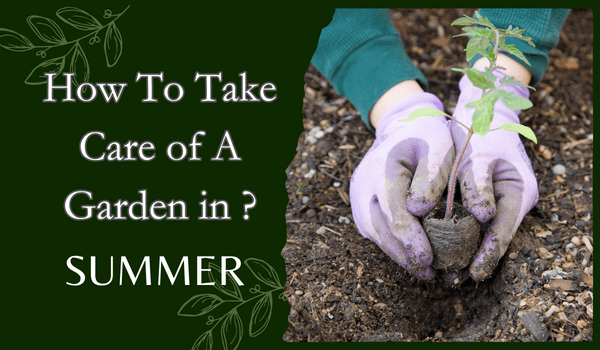When plants are vibrant green, the garden looks stunning. To keep it beautiful in summer, they need proper food and care. Here are simple ways to nourish your plants: Make sure they get enough water and sunlight. Use natural fertilisers like compost or organic manure. Keep the soil healthy by adding nutrients like nitrogen, phosphorus, and potassium. Regularly check for pests and diseases and treat them promptly. With these steps, your garden will thrive and stay lush green all summer long, adding beauty and freshness to your surroundings.
-
Epsom Salt
The use of Epsom salt promotes rapid growth in plants and protects against pests. Granular Epsom salt can be directly mixed into the soil of plants. About 15 grams of Epsom salt can be used once a month. Alternatively, a solution can be prepared by mixing 8 grams of Epsom salt in one litre of water, which can be applied to the soil of plants one to two times a month. This method enhances plant growth and helps in maintaining their health, offering a natural and effective way to nurture your garden.
-
Tea Leaves
For optimal growth of plants, boil a glass of water and add two tablespoons of tea leaves. Let it simmer until the water reduces by half, then strain the tea and pour it into the soil. This method enhances the fertility of the soil, providing essential nutrients and promoting the healthier growth of plants. The tannins present in tea leaves act as natural fertilisers, enriching the soil and aiding in the overall well-being of the plants. Regular application of tea leaf solution can contribute to lush and vibrant foliage, ensuring a thriving garden environment.
-
Baking Soda
Regular application of baking soda is effective in eliminating fungus from plants. To use it, mix a tablespoon of baking soda with two litres of water and half a tablespoon of liquid soap. Spray this mixture onto the areas affected by fungus until the fungus is completely eradicated. Baking soda works by altering the pH level on the plant’s surface, creating an inhospitable environment for fungal growth. Its antifungal properties help prevent further spread of infection and promote the health and vitality of the plants. Consistent use of this method can help maintain a fungus-free garden and ensure the well-being of your plants.
-
Turmeric Powder
Turmeric powder can also be used as a fertiliser, thanks to its antifungal properties that protect plants from fungal infections. To utilize it, mix a tablespoon of turmeric powder in two litres of water and sprinkle it over the plants. Additionally, if any pests are infesting the plants, a small amount of turmeric powder can be applied to eliminate them. This natural remedy not only nourishes the plants but also helps in maintaining their health and resilience against common fungal diseases and pests, ensuring a thriving garden.
-
Mustard cake
Mustard cake helps in enhancing the growth of plants. To use it effectively, soak the mustard cake in water for two days and then expose it to sunlight for some time. Afterwards, mix it thoroughly into the soil around the plants. This process aids in enriching the soil with essential nutrients, promoting better plant growth and overall health. Mustard cake serves as an organic fertiliser, providing plants with a natural boost without the use of harmful chemicals, ensuring a sustainable and thriving garden ecosystem.
-
Vinegar
Due to its acidic properties, vinegar is an effective remedy for repelling pests from plants. To utilize it, mix one tablespoon of vinegar in two litres of water and spray the mixture on areas affected by fungi or pests. The acidity of vinegar creates an inhospitable environment for pests, deterring them from infesting the plants. This natural and eco-friendly method helps to protect plants without the need for harmful chemicals, ensuring a healthier and thriving garden.
-
Neem Leaves
To prepare a natural pesticide using neem leaves, soak 100 grams of neem leaves in two bowls of water overnight. The next day, boil the mixture and strain it. Then, add a bowl of coconut water to the strained solution. Mix it well and sprinkle it around the plants by diluting it with a bucket of water. Neem leaves contain natural compounds that act as insect repellents and help protect plants from pests and diseases. This eco-friendly solution is safe for plants and the environment, providing effective pest control without the use of harmful chemicals.
-
Fitkari Or Alum
Fitkari, or alum, can be used as a fertiliser as well. This not only helps in getting rid of diseases and pests but also improves the quality of the soil. It promotes the healthy growth of plants, keeping them lush green and encouraging more blooms. Ground alum can be mixed with the soil while planting the seedlings. Additionally, it can be applied by pressing it into the soil around existing plants or by mixing it with water for watering. This natural method enhances plant health and contributes to a thriving garden ecosystem without the need for chemical fertilisers.
Conclusion
Summer is approaching the gate and due to this plants will demand those nutrients that will provide them with nutrition in that scorching heat. It is very important to prepare your garden for summer to maintain its health and beauty. This blog discusses all those nurturing items that will fulfil the needs of plants and take care of them in the rough times of summer. Keep reading and keep the nature around us clean.
